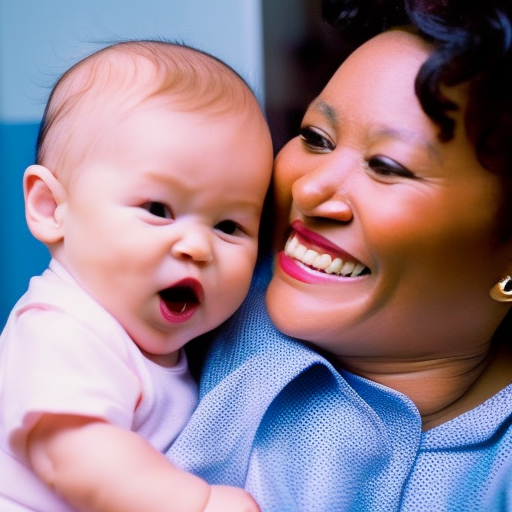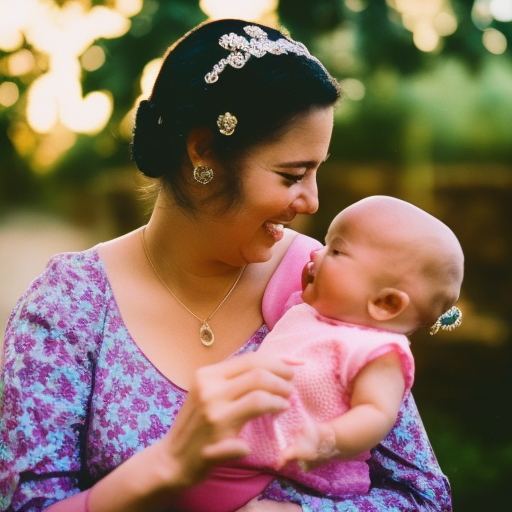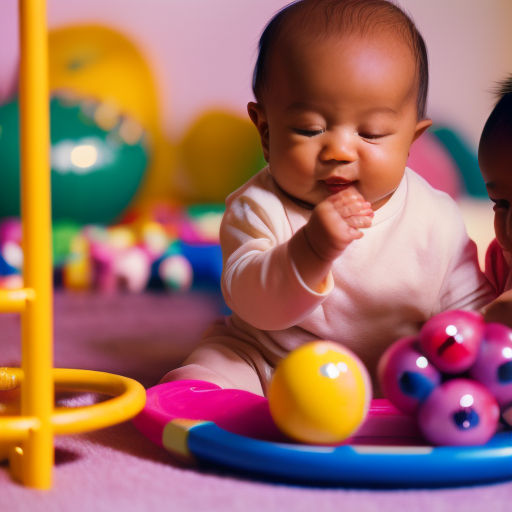"Cherishing Little Steps - A Haven for Baby and Family Journeys"
Social Skills Development in Infants
Have you ever wondered how infants develop the social skills they need to navigate the world around them?
From the earliest interactions with their caregivers to their first experiences with peers, infants are constantly learning and growing in their ability to communicate, connect, and understand others.
But what exactly does social skills development look like in these early stages of life?
In this discussion, we will explore the importance of social skills development in infants, the role of caregivers in fostering healthy social interactions, and strategies for nurturing the growth of these essential skills.
So, let’s dive in and explore the fascinating world of social development in infants.
Key Takeaways
- Social skills development in infants lays the foundation for future interactions and relationships.
- Positive social interactions lead to better emotional regulation skills.
- Early socialization helps develop empathy and compassion.
- Engaging in positive social interactions promotes self-confidence and self-esteem.
Importance of Social Skills Development

Developing strong social skills is crucial for infants as it lays the foundation for their future interactions and relationships with others. The benefits of social skills development in infancy extend far beyond the early years and have long-term effects on a child’s overall well-being and success in life.
Research has shown that infants who engage in positive social interactions with caregivers and peers develop better emotional regulation skills. They learn to recognize and express their emotions effectively, which leads to healthier relationships and improved mental health in the long run. Furthermore, early socialization helps infants develop empathy and compassion, enabling them to understand and respond to the emotions and needs of others.
In addition, social skills development in infancy plays a vital role in cognitive development. Through social interactions, infants learn to communicate, listen, and understand others, which enhances their language skills and cognitive abilities. They also develop problem-solving skills, as social interactions often require negotiation and compromise.
Moreover, early socialization promotes the development of self-confidence and self-esteem in infants. When they engage in positive social interactions, infants receive validation and positive feedback, which helps them develop a positive self-image. This, in turn, supports their overall social and emotional well-being throughout their lives.
Early Interactions and Social Engagement

Early interactions and social engagement are crucial for infants as they lay the foundation for their social and emotional development. These early experiences shape their ability to form relationships and navigate the social world.
Here are some key aspects of early interactions and social engagement that contribute to infants’ development:
-
Parent-child bonding: The bond between parents and infants is essential for their social development. Through responsive and nurturing interactions, parents establish a secure attachment with their child, creating a safe base from which the child can explore the world and develop social skills.
-
Social referencing: Infants learn by observing and imitating others. Social referencing is the process through which infants look to their caregiver for cues on how to react to a situation. By observing their caregiver’s facial expressions and body language, infants learn to interpret and respond appropriately to social cues.
-
Joint attention: Joint attention occurs when an infant and caregiver focus their attention on the same object or event. This shared attention helps infants learn to engage and communicate with others, laying the groundwork for social interactions and language development.
-
Turn-taking: Early interactions involve turn-taking, where the caregiver and infant take turns responding to each other’s cues and actions. This back-and-forth interaction teaches infants the important social skill of taking turns in conversations and interactions.
Role of Caregivers in Social Development

Caregivers play a crucial role in fostering infants’ social development by providing nurturing and responsive interactions. The caregiver-infant bond is a fundamental aspect of social development, as it forms the foundation for future relationships and emotional well-being. Attachment theory, proposed by John Bowlby, emphasizes the importance of a secure attachment between the caregiver and the infant.
When caregivers consistently respond to an infant’s needs, it helps to establish a sense of security and trust. This secure base allows infants to explore their environment and engage in social interactions with confidence. Caregivers who are attuned to their infants’ cues and emotions create a safe and supportive environment that promotes healthy social development.
Research has shown that infants who have secure attachments to their caregivers are more likely to develop positive social skills in later years. They exhibit greater empathy, have better emotional regulation, and are more successful in forming and maintaining relationships.
To foster social development, caregivers can engage in activities that promote social interaction, such as playing peek-a-boo, engaging in joint attention activities, and responding warmly to the infant’s vocalizations and gestures. By providing a nurturing and responsive environment, caregivers lay the foundation for healthy social development in infants.
Building Trust and Attachment

Nurturing and responsive interactions are crucial for building trust and attachment between caregivers and infants. These early experiences lay the foundation for healthy social and emotional development, as well as building resilience in infants. Forming secure bonds with caregivers provides infants with a sense of safety and security, which allows them to explore and learn about the world around them.
To build trust and attachment with your infant, consider the following:
-
Responding to your infant’s needs promptly and consistently: This helps them develop trust and feel secure in the knowledge that their needs will be met.
-
Engaging in eye contact and physical touch: These actions promote bonding and connection between you and your infant.
-
Providing a predictable and consistent routine: Infants thrive on routine as it provides a sense of stability and predictability.
-
Engaging in positive and loving interactions: Smiling, talking, and playing with your infant helps them feel loved and valued, strengthening the attachment bond.
Communication Skills and Nonverbal Cues

To foster strong social bonds and effective communication, it’s important to understand and respond to an infant’s nonverbal cues. Infants rely heavily on their body language and facial expressions to communicate their needs and emotions. By observing these nonverbal cues, you can better understand what your infant is trying to convey.
Body language plays a vital role in an infant’s communication. For example, when an infant turns away or arches their back, it may indicate that they’re feeling overwhelmed or uncomfortable. On the other hand, leaning in or reaching out can signal curiosity or a desire for interaction. By paying attention to these cues, you can adjust your approach and respond accordingly, fostering a sense of security and trust.
Facial expressions are another important aspect of nonverbal communication in infants. Smiling, for instance, can indicate happiness or contentment, while furrowed brows or a frown may signal discomfort or distress. By recognizing and responding to these expressions, you can provide the appropriate support and comfort to your infant.
Understanding and responding to an infant’s nonverbal cues is crucial for building a strong foundation for communication and social interaction. By being attentive and responsive to their body language and facial expressions, you can create a nurturing and supportive environment that promotes healthy development and fosters a deep sense of connection.
Emotional Regulation and Empathy

Developing emotional regulation and empathy is essential for infants to navigate their emotions and understand the feelings of others. Research suggests that infants begin to display empathetic behavior as early as six months old, demonstrating their innate capacity for empathy and emotional intelligence. Here are some key aspects of emotional regulation and empathy in infants:
-
Empathy and Emotional Intelligence: Infants can show signs of empathy by imitating others’ facial expressions or showing distress when they witness someone else in pain. This early display of empathy lays the foundation for developing emotional intelligence later in life.
-
Social Cognition: Infants’ ability to understand the mental states of others, known as social cognition, plays a crucial role in empathy development. By observing and imitating others, infants learn to interpret and respond to the emotions of those around them.
-
Perspective Taking: As infants grow, they start to develop a rudimentary understanding of others’ perspectives. This helps them recognize that different people may have different emotions and allows them to respond empathetically.
-
Emotional Regulation: Infants gradually learn to regulate their own emotions through caregiver interactions and self-soothing techniques. This skill enables them to manage their emotional responses in different situations, fostering healthy social interactions.
Peer Interactions and Socialization

Infants’ development of emotional regulation and empathy sets the stage for their engagement in peer interactions and socialization. As infants grow, they begin to seek out social interactions with their peers, which greatly influences their social behavior. Peer influence plays a crucial role in shaping infants’ social skills and behaviors. Through observation and imitation, infants learn how to interact, communicate, and cooperate with others. These interactions also provide opportunities for infants to practice and refine their emotional regulation and empathy skills.
However, in today’s digital age, the impact of screen time on socialization skills has become a concern. Excessive screen time can limit infants’ opportunities for face-to-face interactions with their peers, hindering their development of social skills. Research suggests that excessive screen time can lead to delays in social communication, reduced social engagement, and impaired social interactions in infants.
To foster healthy peer interactions and socialization, it’s important to provide infants with ample opportunities for face-to-face interactions with their peers from an early age. This can be achieved through playdates, social gatherings, and structured activities that encourage social interactions. It’s also crucial to limit infants’ screen time and prioritize real-world interactions to ensure their socialization skills develop optimally.
Play and Social Skills Development

Play is a crucial component of social skills development in infants, as it provides them with opportunities to learn and practice important social behaviors. Through play, infants engage in various activities that promote the development of social skills in a fun and interactive way. Here are some ways in which play supports social skills development in infants:
-
Play based learning: Play allows infants to explore their environment and learn about cause and effect relationships. Through play, infants develop problem-solving skills, enhance their cognitive abilities, and gain a better understanding of the world around them.
-
Social skills through imagination: Pretend play, such as playing house or pretending to be a doctor, encourages infants to use their imagination and engage in social interactions. It helps them develop empathy, cooperation, and turn-taking skills, which are essential for building relationships and navigating social situations.
-
Peer interactions: Playtime provides opportunities for infants to interact with their peers, promoting the development of social skills such as sharing, taking turns, and cooperating. These interactions help infants learn about social norms, develop social awareness, and build friendships.
-
Emotional regulation: Play allows infants to express and regulate their emotions in a safe and supportive environment. Through play, infants learn to manage their emotions, understand the feelings of others, and develop empathy.
Strategies for Fostering Healthy Social Interactions

To foster healthy social interactions in infants, it is important to implement strategies that encourage positive engagement with others. By promoting social engagement from an early age, infants can develop important skills that will benefit them throughout their lives. Here are some effective strategies for promoting social interaction in infants:
| Strategies for promoting social engagement | Benefits of early social interactions |
|---|---|
| Encourage face-to-face interactions | Develops social communication skills |
| Provide opportunities for peer interactions | Enhances social awareness and empathy |
| Engage in joint attention activities | Builds shared focus and cooperation |
| Use responsive and sensitive parenting | Establishes secure attachment bonds |
| Model positive social behaviors | Encourages imitation and learning |
Encouraging face-to-face interactions allows infants to learn important social communication skills, such as making eye contact and interpreting facial expressions. Providing opportunities for peer interactions helps infants develop social awareness and empathy as they learn to navigate social situations with their peers. Engaging in joint attention activities, where you and your infant focus on the same object or event, builds shared focus and cooperation. Using responsive and sensitive parenting fosters secure attachment bonds, which are crucial for healthy social development. Lastly, modeling positive social behaviors not only encourages imitation but also provides infants with examples of appropriate social interactions.
Frequently Asked Questions
How Can Social Skills Development in Infants Impact Their Academic Success Later in Life?
Your baby’s early social skills development can have long-term effects on their academic success. It’s crucial to intervene early and provide support, as research shows the importance of social skills in later life achievements.
What Are Some Common Challenges That Caregivers May Face in Promoting Social Skills Development in Infants?
Caregivers may face challenges in promoting social skills development in infants, but with caregiver support and early intervention, these challenges can be overcome. Providing a nurturing and stimulating environment is crucial for fostering healthy social development.
Are There Any Specific Cultural or Environmental Factors That Can Influence Social Skills Development in Infants?
Cultural influences and environmental factors play a significant role in shaping an infant’s social skills development. Research shows that exposure to diverse cultures and positive social environments can enhance their ability to communicate, interact, and form relationships.
How Do Infants Learn to Interpret and Respond to Nonverbal Cues?
As an infant, you learn to interpret and respond to nonverbal cues through early social interactions. These interactions play a crucial role in developing your nonverbal communication skills, which are important for building relationships and understanding others.
Can Social Skills Development in Infants Be Hindered by Excessive Screen Time or Exposure to Media?
Excessive screen time and media exposure can hinder social skills development in infants. Interacting face-to-face, reading books, and engaging in playtime are crucial for their growth. Limit screen time to promote healthy social development.
Conclusion
As you watch your little one grow and develop, remember the importance of nurturing their social skills.
From early interactions and building trust with caregivers to the development of communication and empathy, these skills lay the foundation for healthy relationships and socialization.
Just like a garden needs care and attention to flourish, so do our infants.
So, let’s continue to foster their social development, planting the seeds for a bright and interconnected future.


